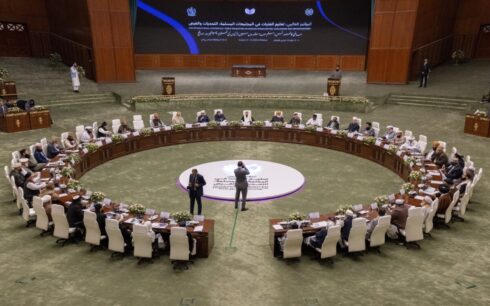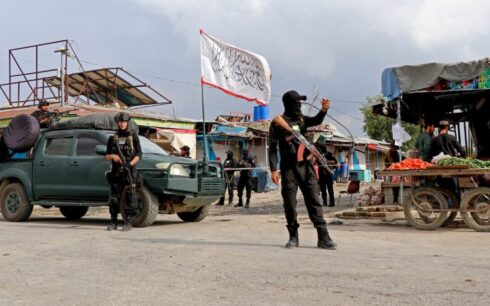Two UN experts, including UN Special Rapporteur Richard Bennett, in a new report say that while the backlash against women’s and girls’ rights has unfolded in different countries and regions in recent years, nowhere else in the world has there been an attack as widespread, systematic and all-encompassing on the rights of women and girls as in Afghanistan.
“Every aspect of their lives is being restricted under the guise of morality and through the instrumentalization of religion,” said the report.
The UN experts say in their report that the discriminatory and restrictive environment, the climate of fear and the lack of accountability for the wide range of violations documented by the experts in the present report make it impossible for women and girls to exercise their rights, restrains all persons and organizations from defending them, and emboldens further abuses.
The pattern of large-scale systematic violations of women’s and girls’ fundamental rights in Afghanistan, abetted by the Taliban’s discriminatory and misogynistic policies and harsh enforcement methods, constitutes gender persecution and an institutionalized framework of gender apartheid, it added.
“At the same time, Afghan women and girls continue to resist and struggle for their human dignity, however exhausting it may be,” said the report. “Their strength and determination to continue to exercise their rights through creative, peaceful initiatives deserve to be nourished and supported. The international community should remain engaged on the situation in Afghanistan and take concrete steps to support accountability for serious human rights violations.”
The experts asked Taliban authorities to ensure compliance of Afghanistan with its international human rights obligations by rescinding all discriminatory edicts and instructions issued since August 2021 that specifically target women and girls.
They also asked Taliban to ensure equal representation and meaningful participation of women and girls, from all religious and ethnic groups, in all decision-making processes affecting their lives.
The experts said that the Taliban should desist from committing threats of or acts of violence, including arbitrary detention, sexual abuse, or any form of torture, ill-treatment or punishment against women and girls for allegedly violating the edicts or for protesting peacefully;
They have asked the Taliban to investigate cases of violence against women, including women protesters and prisoners, bring perpetrators to justice, and provide reparations.
The experts urged the Taliban to mmediately restore equal access to quality education for girls and women at all levels, and allow schools and universities to unconditionally accept female students in all courses and to reinstate all female teachers;
The UN experts said Taliban should remove all restrictions and barriers to women’s rights, including repealing the imposition and enforcement of compulsory dress codes and maharam, both generally and specifically in relation to employment, education and freedom of movement;
They also asked the Taliban to mmediately restore the right of women to work for the United Nations and international NGOs and in the civil service;
The experts called on the international community to ensure that the situation of human rights of women and girls in Afghanistan is central to all policy decisions and engagement with the de facto authorities, in accordance with the recommendations for them in the previous paragraph.
They also asked the international community to ensure the representative, equal and meaningful participation of Afghan women in all deliberations concerning the country’s future, including while defining the international community’s policies towards the de facto authorities;
They asked the international community to mandate a report on gender apartheid as an institutionalised system of discrimination, segregation, humiliation and exclusion of women and girls, with a view to developing further normative standards and tools, galvanizing international legal condemnation and action to end it and ensure its non-repetition;
The experts said that the international community should ensure that women and girls in Afghanistan have due access to United Nations spaces, and that their voices and realities, especially of those most marginalized, are duly considered.
About the report
In the present report, the Special Rapporteur on the situation of human rights in Afghanistan and the Working Group on discrimination against women and girls describe the widespread and systematic discrimination to which women and girls in Afghanistan are subjected, particularly since the fall of the Islamic Republic of Afghanistan on 15 August 2021.
They also highlight the resilience and strength of Afghan women in the face of such repressive conditions.
In its resolution 51/20, the Human Rights Council requested the Special Rapporteur on human rights in Afghanistan and the Working Group on discrimination against women and girls to prepare a joint report on the situation of women and girls in Afghanistan. The present report is submitted to the Council pursuant to that request.
The Special Rapporteur and the Working Group interviewed a total of 79 Afghans (67 women and 12 men), of whom 63 (51 women and 12 men) were inside Afghanistan. They included human rights defenders, journalists, lawyers, academics, entrepreneurs, teachers, students, social service providers and businesswomen. In addition, they conducted a survey of 2,112 Afghan women across 18 provinces in March 2023, and drew on the insights of a further 159 women focus group participants on the survey results in 11 provinces.
The Special Rapporteur and the Chair of the Working Group visited Afghanistan from 27 April to 4 May 2023. The experts visited Kabul and Mazar-e-Sharif, conducted site visits and met with representatives of the de facto authorities, civil society, women’s groups, entrepreneurs, religious leaders, teachers, journalists, victims of individual human rights violations, United Nations entities and the diplomatic community. The information they gathered during their visit is reflected below.





